The third session of TechCrunch50 introduced four companies related to the enterprise. The judges for this panel were: Marc Andreessen, Marc Benioff, Ash Patel, and Yossi Vardi. You can see our coverage of the first panel here and the second panel here. A sampling of the judges’ comments follows the company summaries.
FairSoftware
FairSoftware – FairSoftware aims to simplify the hassles associated with creating a company by eliminating nearly all of the paperwork. Instead of following the traditional route of incorporation, founders agree to a special contract created by Fairsoftware which gives them far more freedom than they’d normally have.
Setup is easy: founders simply enter their company name, draft a brief description, and allocate how much of the company each founder owns. The software also offers employee management tools, allowing them to set how often they’d like to be paid, with all income directed into a PayPal account.
Under Fairsoftware’s contract (which includes a Software Bill of Rights) , these founders (and eventually other employees) are allotted “virtual shares”, which are not subject to the same legal restrictions as normal stock. For example, a company could give this virtual stock to a customer who fixed a bug – something that cannot be done with regular stock.
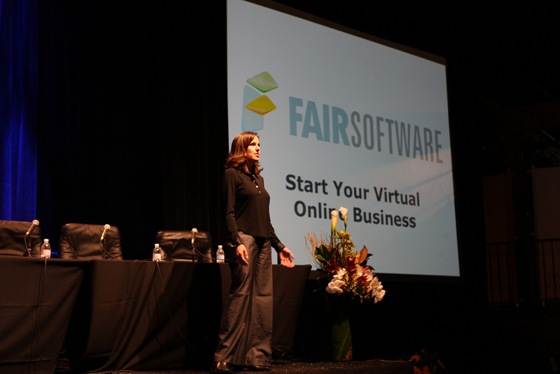
Yammer
Yammer – Yammer bears a very strong resemblance to Twitter, and mimics much of its functionality. However the service is geared towards businesses, allowing coworkers to broadcast messages to each other in a secure environment. At launch, the site is adopting a model similar to Facebook, requiring users to register with a work email address in order to join their company’s network. Companies can ensure further security by restricting access to IP ranges or set password policies.
You can read more about Yammer in our full post about the company here.
Click here to watch a video of Yammer’s presentation.
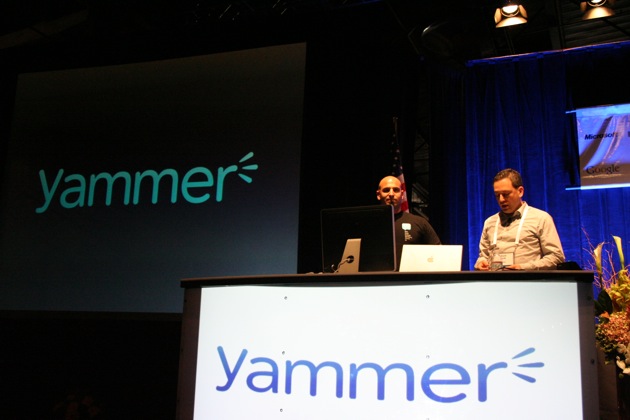
Connective Logic
BluePrint by Connective Logic – BluePrint aims to facilitate programming for multi-core processors, which is one of the most difficult (and important) problems in the development community.
Multi-core processors allow developers to complete processing tasks more quickly than a single core processor. Recently most computers are shipping with more than one core, but developers oftentimes fail to utilize the cores to their maximum capabilities. BluePrint says that developers can use their tools to convert their standard single processor programs with a minimum amount of coding changes.
During their presentation, BluePrint’s founders showed off a large scale terrorist monitoring program in London that tracked vehicle license plates. Using a single core, the processor was unable to keep up with the data during a peak demand period. But using BluePrint’s multicore scaling, the application was able to utilize CPU cycles on remote computers to complete the tasks.
Click here to watch a video of Connective Logic’s presentation.
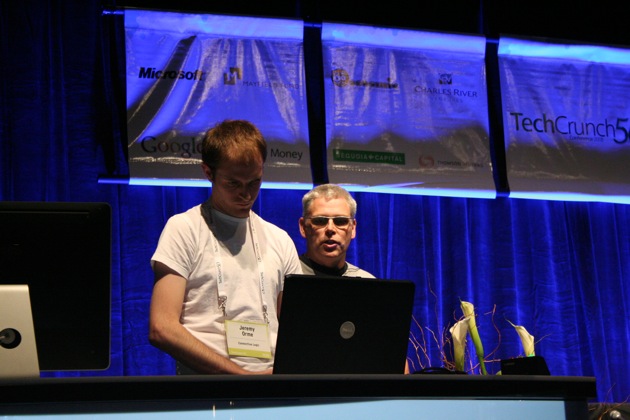
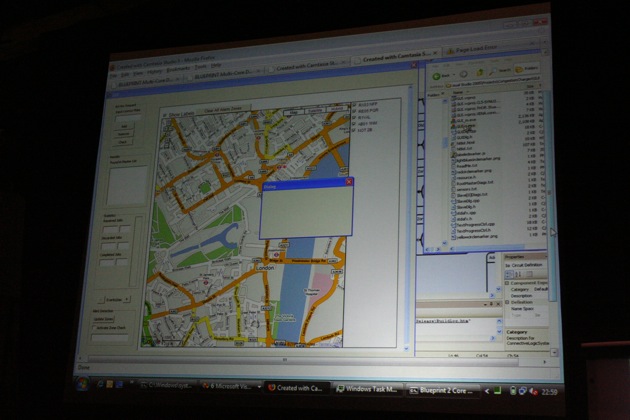
Rinen
OpenTrace by Rinen – OpenTrace tries to measure the environmental impact of any product by analyzing the footprints of the components that are involved in its creation. For example, a baker could trace the impact of a loaf of bread by tracing the environmental cost of the raw ingredients and their costs of transportation. Other products named included SD cards or a 747 airplane.
To analyze a product, users can use their computer to scan a barcode. OpenTrace will present the data as a visual map linking the various ingredients to their factories, or as a standard sortable list.
By making these environmental footprints standardized and public, OpenTrace thinks it can put pressure on manufacturers to stay green, while also giving them a good marketing tool if they are greener than their competitors.
Click here to watch a video of Rinen’s presentation.
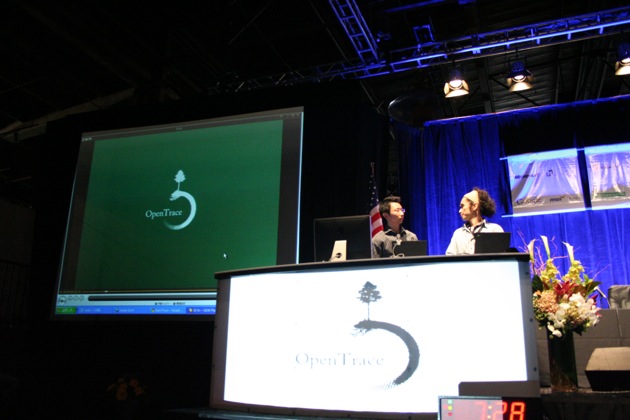
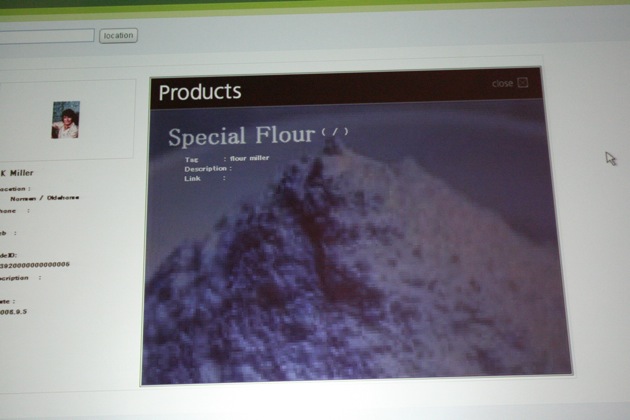
Expert Panelists
Benioff:
Fairsoftware: Did you see this feature, “remove founder, and the trash can? That is the VC feature.
I thought the most powerful part is the allocation of shares. Institutionalizing an IR department rapidly is difficult, I didn’t see self-service. I would call it FairShares instead of Fair Software. I would go more narrow. If you built it on our platform, I would sell it to our customers because I think they want it. I think it I great.
Yammer: First of all I really like this company the best. I might use Facebook for the identity model, to kick it off, instead of creating a new one.
The name is not very corporate, it reminded me of what I’m having for Thanksgiving. Maybe you could use a Yam for a logo.
Blueprint: I renamed itScale on Demand.multicore is one of the huge challenges. You are going to encumber traditional software development tool with traditional software development model will be an encumbrance going forward.
Benioff, addresses the Japanese company in Japanese. I think this whole concept of food traceability is critical. I’d partner with somebody like FairTrade to … united marketing, here is a picture of the guy who picked the chocolate. An easier consumer interface. I am on my iPhone, I see the .. of my phone. A killer app for the next decade.
Yossi Vardi: I believe this is a very efficient way for employees to [keep tabs]on bosses.
Blueprint, the whole thing went over my head. I think that Arrington should not bring people who do not have a good American accent to the stage.
Benioff in order to make me look bad talked to them in Japanese. Well,. I also know Japanese {speaks Hebrew]
Marc Andreessen:
-Blueprint is a good idea, and this is a big problem, but is it solving the easy part or the hard part of this problem?



